Super cold: Is 'the worst cold ever' going around?
- Published
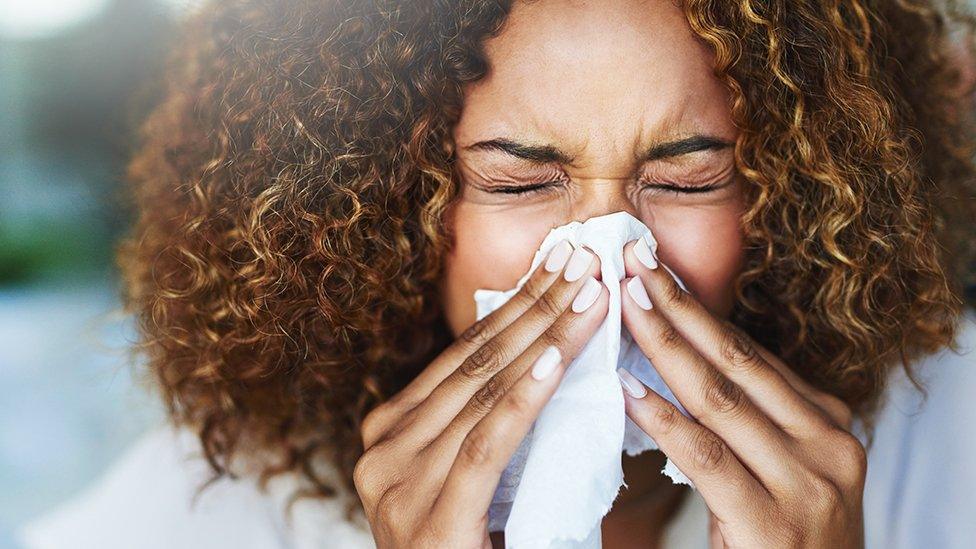
You've probably heard a lot more sniffles around if you've gone out recently or got on public transport.
Perhaps there's that one person on the work call who's not muted and starts a coughing fit before a meek: "It's not Covid, I've been tested!"
Or, maybe you've been ill and agree with people saying this is no ordinary cold - but the "worst cold ever" or a "super cold".
Well get used to it. Because cold season has begun.
And some people are already suffering.
'Nothing like this'
One of those is 24-year-old Rebecca London.
The retail worker from Bournemouth caught what she calls "the worst cold ever" at a festival.
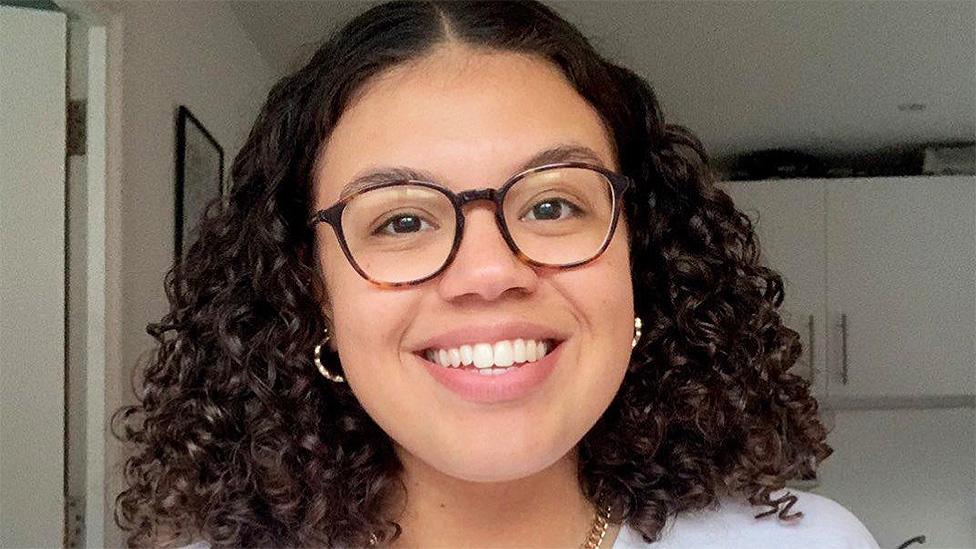
It's the "worst cold" Rebecca has had
A normal cold for her would have "a runny nose, sneezing, a bit of a sore throat and feeling a bit rundown".
"Nothing like this," she tells Radio 1 Newsbeat.
"I barely slept, I'd wake up in the night just coughing, a constantly runny nose and feeling so tired," she adds.
Rebecca did lateral flow tests and got negative results, but was ill for more than a week, and was left wondering "if it's ever going to end".
And she's not the only one.
Allow X content?
This article contains content provided by X. We ask for your permission before anything is loaded, as they may be using cookies and other technologies. You may want to read X’s cookie policy, external and privacy policy, external before accepting. To view this content choose ‘accept and continue’.

Allow X content?
This article contains content provided by X. We ask for your permission before anything is loaded, as they may be using cookies and other technologies. You may want to read X’s cookie policy, external and privacy policy, external before accepting. To view this content choose ‘accept and continue’.

It may not be Covid, but it is linked to what's happened in the past 18 months.
"We've actually been seeing a rise in the number of coughs and colds and viral infections," says Dr Philippa Kaye, a GP based in London.
She says the numbers have been as high as you'd see in a normal winter and the main reason is because of the easing of coronavirus restrictions.
"We are mixing in a way that we haven't been mixing over the past 18 months," says Dr Philippa.
"During those first lockdowns, we saw numbers of other [non-Covid] infections fall. We think that that was primarily due to the restrictions on meeting up."
Allow X content?
This article contains content provided by X. We ask for your permission before anything is loaded, as they may be using cookies and other technologies. You may want to read X’s cookie policy, external and privacy policy, external before accepting. To view this content choose ‘accept and continue’.

Allow X content?
This article contains content provided by X. We ask for your permission before anything is loaded, as they may be using cookies and other technologies. You may want to read X’s cookie policy, external and privacy policy, external before accepting. To view this content choose ‘accept and continue’.

So while the lockdown rules were designed to stop Covid spreading, they also stopped other viruses moving between people too.
Now we're going out, meeting with friends and getting on public transport again, the common cold spreads again.
"Most of these things are respiratory driven, so say somebody talks or coughs or sneezes - you breathe it in," says Dr Philippa.
Not mixing so much last winter has meant this year the government's trying to get more people than ever to have a flu vaccine.
Health officials are worried as it will be the first year both Covid and flu will circulate at the same time, so they want everyone who's eligible to get it.
More than 40 million people across the UK are being offered a flu jab, including for the first time, all secondary-school children up to the age of 16.
What do I do about it?
Firstly, remember the three main symptoms of coronavirus. If you have one of these, get a PCR test.
New and continuous cough - coughing a lot for more than an hour, or having three or more coughing episodes in 24 hours
Fever - a temperature above 37.8C
Change in smell or taste - either you cannot taste or smell anything, or these senses are different to normal.
If you don't have these symptoms but still want to check, you can do a free lateral flow test. If you can't get one through your employer or place of education you can get test kits delivered free to your home or pick them up.
ZOE, the world's largest ongoing study into the virus, states through their millions of health reports, many of the symptoms of Covid-19 are now the same as a regular cold, especially for people who have received two doses of the vaccine. That makes it harder to tell the difference.
These include:
Sore throat
Runny nose
Headache
Sneezing
ZOE says:, external "a negative result from a lateral flow test is not reliable enough to be sure you're definitely not infected, so if your symptoms persist it's best to get a PCR test to be sure."
But if it is just a cold Dr Philippa says most of the time these can be managed at home.
Her recommendation is to have "loads of fluids and rest, over-the-counter simple painkillers for headaches and aches and pains.
"Even simple things like honey in a hot drink can help ease a sore throat."
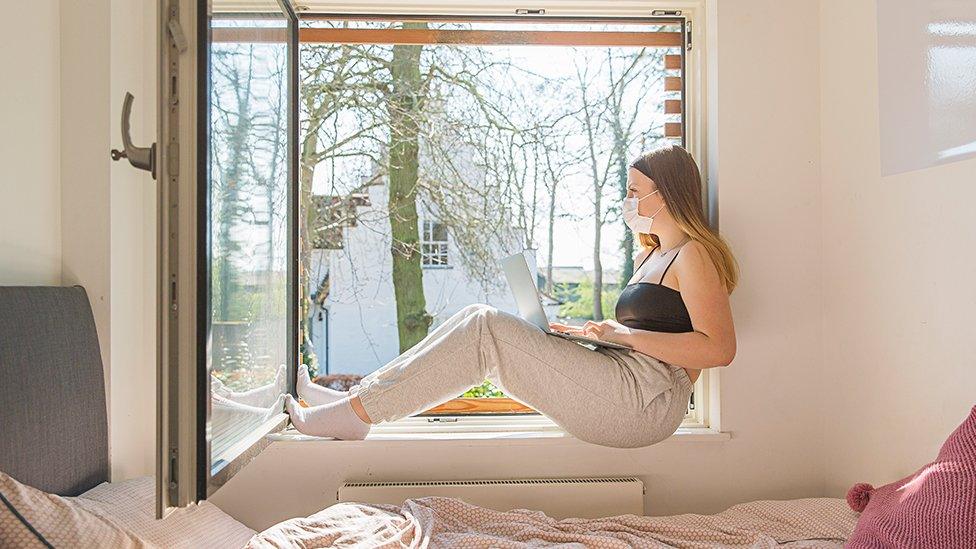
She adds: "You can get lots of advice from your local pharmacist for minor coughs and colds.
"But if you become more unwell, if you cough up blood, have chest pain, if you have shortness of breath or chest tightness, then you need to seek medical advice."Is 'the worst cold ever' going around?
Freshers' flu
Look, we don't want to put new university students off their exciting first few weeks but freshers' flu will be pretty much unavoidable.
Just ask 18-year-old Noor - she's studying in Edinburgh, and has been suffering with the worst illness she's ever had.
"Normally I'm still able to go about my day, but this one left me with muscle fatigue, a lost voice and headache that meant I've just stayed indoors."
It's not actually flu though - it's just another version of the common cold.
Add in the fact that students' immune systems will probably take a battering from going out a lot, and you'll be vulnerable to it.
Allow X content?
This article contains content provided by X. We ask for your permission before anything is loaded, as they may be using cookies and other technologies. You may want to read X’s cookie policy, external and privacy policy, external before accepting. To view this content choose ‘accept and continue’.

Luckily, protecting yourself isn't rocket science - it's a case of eating well, getting enough sleep and washing your hands regularly.
And remember to register for your local GP if you're moving somewhere new.
Noor can't wait to get back to socialising properly.
"Although I think it'll be some time before I'm socialising in a large group because everyone seems to have freshers' flu right now," she adds.


Follow Newsbeat on Instagram, external, Facebook, external, Twitter, external and YouTube, external.
Listen to Newsbeat live at 12:45 and 17:45 weekdays - or listen back here.
- Published3 May 2022
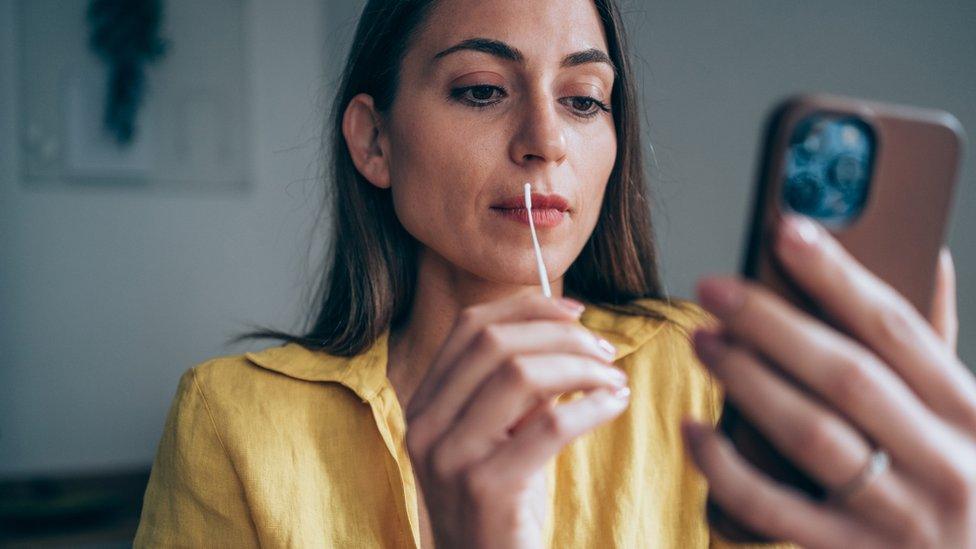
- Published6 October 2021

- Published17 November 2021
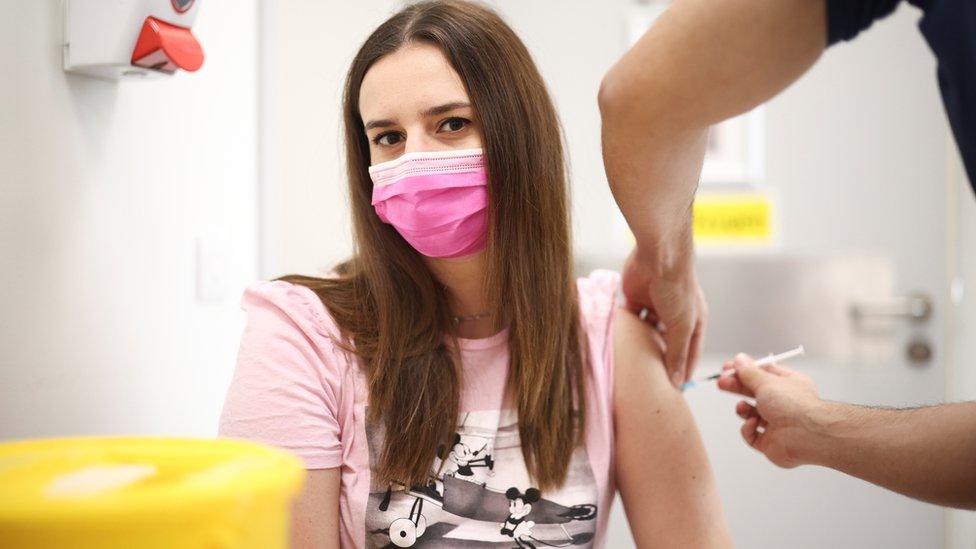
- Published10 September 2021

- Published26 September 2016
